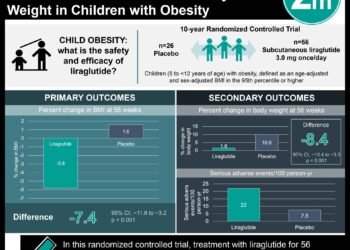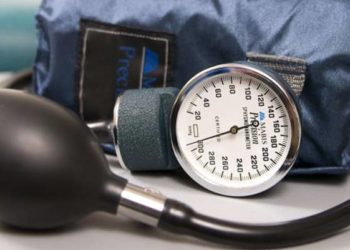Sodium intake of children and teens on par with adults, associated with risk for high blood pressure [Pediatrics]
Image: CC/topgold
Key study points:
1. The average intake of sodium among those aged 8-18 is as high as U.S. adults
2. Sodium intake in those aged 8-18 is positively associated with higher blood pressure, and this risk may be amplified in overweight/obese individuals.
Primer: It is known that children and teens with high blood pressure (BP) are at an increased risk of cardiovascular disease as they age. Given the known association between high sodium and hypertension, many studies have sought to analyze a link between sodium in these age brackets and BP, with most demonstrating a positive association and mild reduction in BP with sodium restriction. However, data on sodium intake and BP by weight status (a key known risk factor for hypertension) in children and adolescents is limited. This study sought to analyze usual sodium intake in children and adolescents and BP, also stratifying by weight status. If we can better elucidate risk factors in children, we can target interventions at the appropriate age and subpopulation to make interventional leaps in cardiovascular disease.
This [retrospective] study: Authors sourced data from the NHANES trial, focusing on ages 8-18 and estimating sodium intake by patient interview data. They then analyzed blood pressure, taken by certified professionals during the trial. Overweight children were designated as a BMI between the 85th and 95th %iles for age and gender. Obesity was defined as >95th percentile. 37% of the sample was designated in the combined group of overweight/obese. For every 1000mg of sodium intake per day was associated with a 1mm Hg increase in systolic BP overall, and 1.5 mm Hg in the overweight/obese subgroup. Authors split sodium intake into quartiles, with an average intake of 3387 mg/day. Overall, those in the top quartile had significantly increased BP versus the bottom quartile (106.2 to 108.8 mm Hg, P=.01). In the overweight/obese groups, the comparison was also significant: mean of 109.0 mm Hg in the bottom quartile to 112.8 mm Hg for the top quartile (p=.037).
Those in the highest quartile were determined to have an increased risk (OR 2.0, p=.062) for high blood pressure. For the overweight/obese group, this risk was 3.5 (p=.013). Sodium intake and weight had a significant synergistic effect on BP. Data maintained associations when adjusted for physical activity.
In sum: This study draws strength in external validity based on its widely representative national cohort from which the data were compiled. We can conclude that sodium intake is positively associated with systolic BP and risk for high blood pressure, in-line with previous studies. This study adds data for overweight/obese children, and suggests that the effect of sodium intake on BP may be greater for this subgroup. Readers should be aware that estimating sodium based on recall has an obvious inherent potential for bias, as measuring content of sodium in the urine would have been more standardized.
Written by A.C. and M.S.
Click to read the study, published today in Pediatrics
© 2012 2minutemedicine.com. All rights reserved. No works may be reproduced without written consent from 2minutemedicine.com. DISCALIMER: Posts are not medical advice and are not intended as such. Please see a healthcare professional if you seek medical advice.




